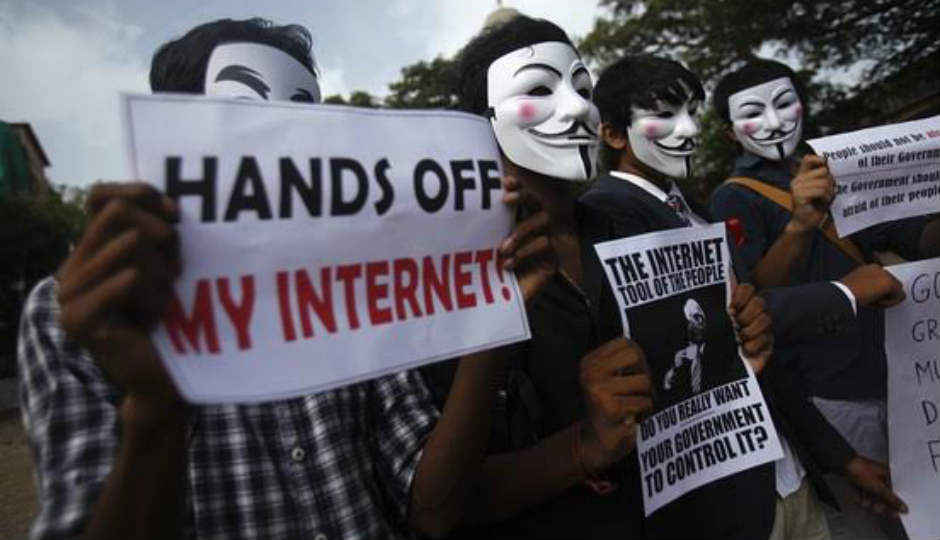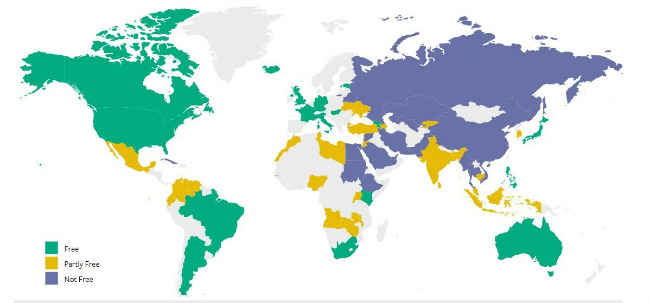
Internet freedom has grown in India for the second consecutive year, although, it has decreased globally for the fifth year on the trot
A new report on internet freedom shows that India has marginally improved its score over last year. However, there has been an overall decline in the freedom of the internet globally for the fifth consecutive year, with China ranking at the bottom of the 65 nation list.
“Freedom on the Net 2015” is an annual report prepared by Freedom House, an American pro-democratic group. Each country has been scored on a scale of 100, based on three criteria with different weightage in scores. The higher the country’s score, lesser is the internet freedom. India has been classified as “partly free”, with a score of 40. Incidentally, it is the second consecutive year that India’s score has decreased, signifying improvement. The key developments in the country listed in the report include the Supreme Court declaring Section 66A of the IT Act unconstitutional while upholding section 69A and the net neutrality debate. “Internet penetration in India continued to increase in 2015, with mobile penetration once again playing a critical role in improving access. Infrastructure continues to remain a significant barrier,” the report notes. There has been an increase in content blocking during the study period and also in the violations of user rights.
Around the world, governments have increasingly censored information of public interest while expanding surveillance and cracking down on privacy tools. 32 of the 65 nations are on a negative trajectory in terms of internet freedom. China has been found to be the worst abuser of internet freedom. “The aim of establishing control was particularly evident in the government’s attitude toward foreign Internet companies, its undermining of digital security protocols, and its ongoing erosion of user rights, including through extralegal detentions and the imposition of prison sentences for online speech,” says the report. China is followed by Iran, Syria, Ethiopia, and Cuba. Western European nations, US, Canada, Brazil, and Argentina are among the countries classified “free”. Iceland, with a score of 6 tops the list.
The topics that are most frequently censored by governments are criticism of authorities, corruption, political opposition, satire, social commentary, blasphemy, mobilisation of public causes, LGBTI issues, ethnic and religious minorities, and conflict. The Section 66A of the IT Act was prone to misuse by administrations, which was eventually struck down by the Supreme Court in India. The report highlights how governments have “stigmatized encryption as an instrument of terrorism, and many tried to ban or limit tools that protect privacy.” This should ring a bell with Indian users as well. The uproar caused by the government’s short-lived draft encryption policy, however, happened after the coverage period of the report.
The report also indicates that 42 of the 65 countries forced companies or internet users to remove or restrict content dealing with political, social or religious issues. There has also been a spurt in intimidation by authorities in 40 countries. Many countries have upgraded their surveillance infrastructure and 14 countries have passed new laws pushing for increased surveillance.





